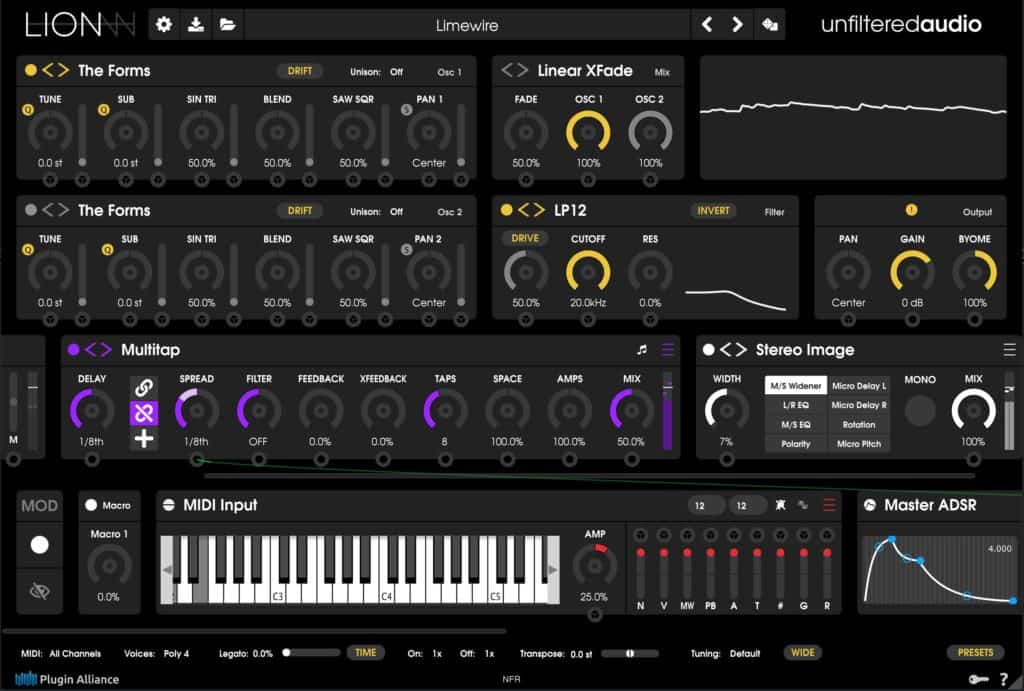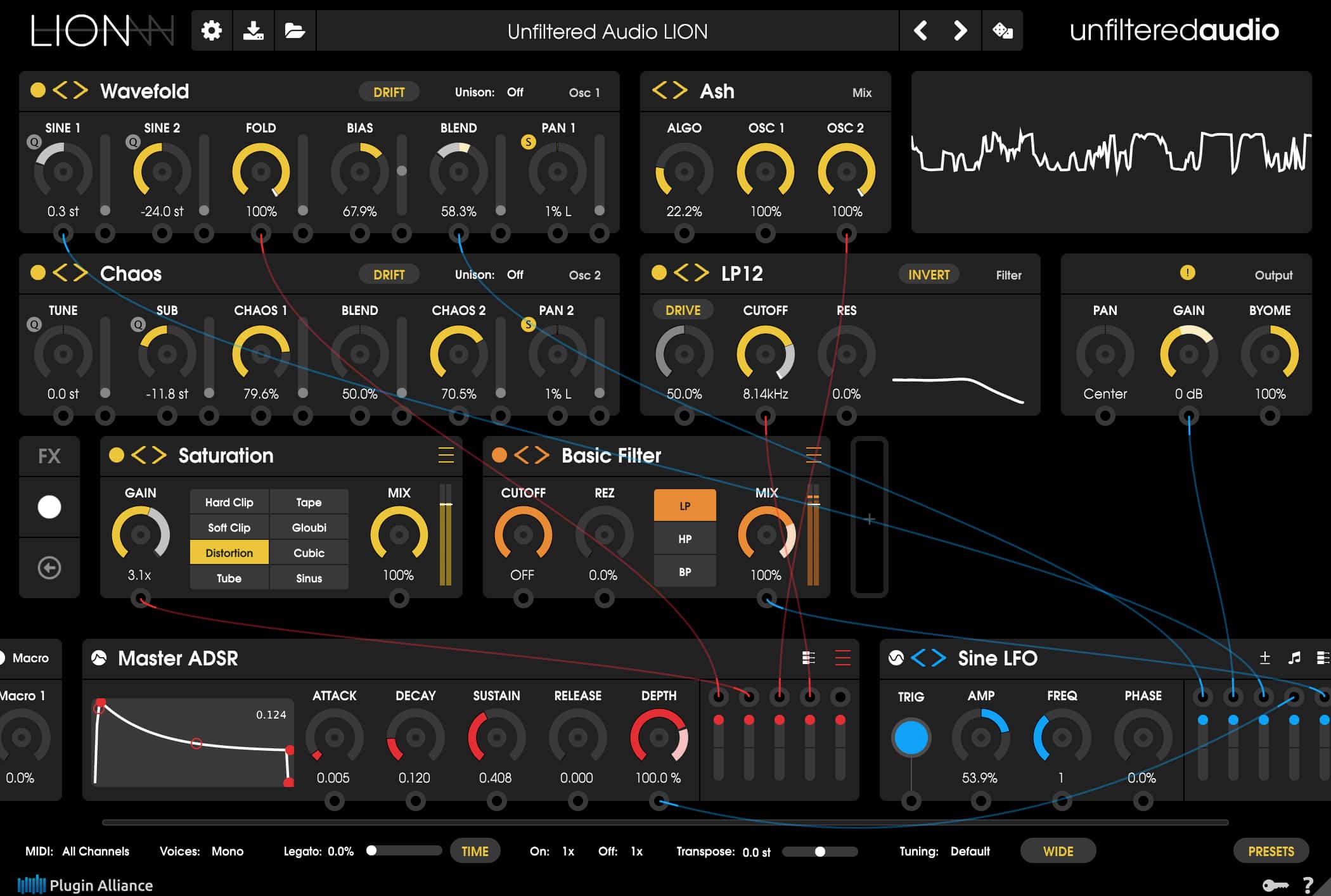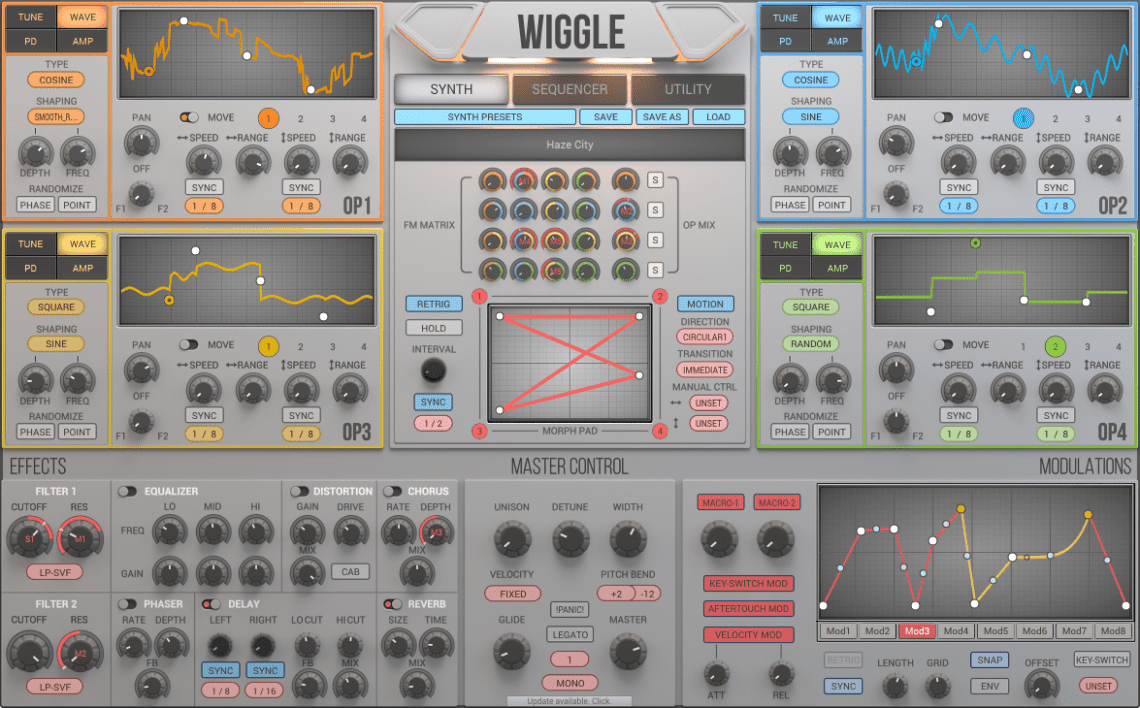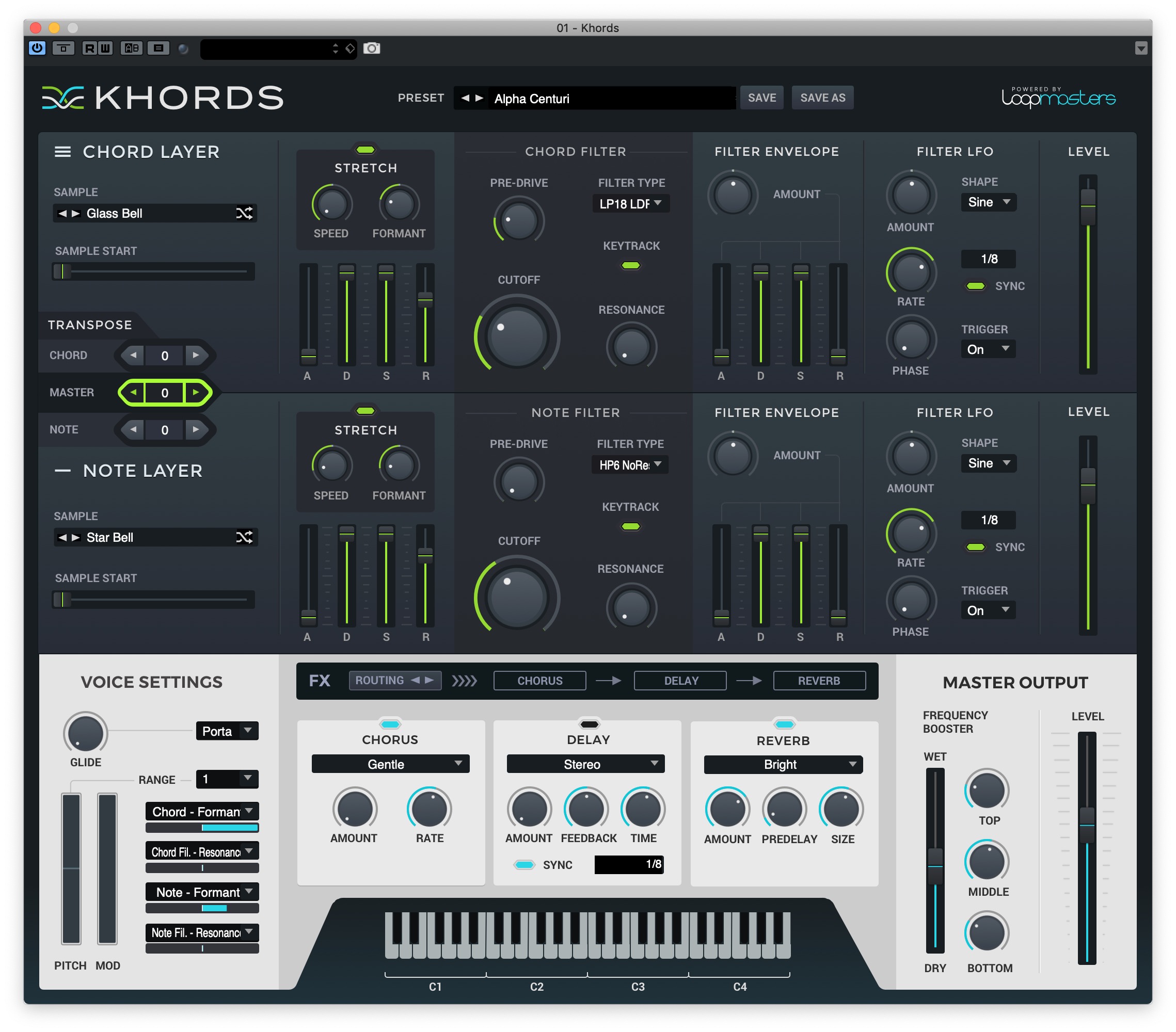LION Synthesizer by Unfiltered Audio
LION is a digital synth and includes all the outstanding FX modules, modulation capabilities and intelligent technology we’ve come to learn & love from Unfiltered Audio plugins. This synthesizer wants to do only scream and roar.

Subsequent progressing some of the most innovative and forward-thinking audio processing tools in the world of plugins, Unfiltered Audio is reaching for new heights with their groundbreaking first synthesizer. LION is an extraordinarily deep synth that features an easy-to-use interface with everything you need for quick patching, endless experimentation, and intuitive sound design.

With the cutting- edge Californian company’s groundbreaking first foray into the wonderful world of software synthesizers similarly scaling new heights, it is set to become the King of the synthesis jungle! LION is an extremely versatile synthesizer with a very simple signal path, putting two oscillators through a mixer and running them through a filter. This software synth is much like a traditional subtractive synthesizer. LION is far from traditional in its exotic execution, however, effectively encouraging endless experimentation in typical Unfiltered Audio innovative and forward-thinking fashion.
LION’s Architecture
For below LION’s hood hides a dual-oscillator architecture with each oscillator featuring 26 modes, ranging from familiar classics to unique oscillators found nowhere else — pick and choose from FM (Frequency Modulation) synthesis, subtractive or additive waveforms, ‘super’ oscillator stacks, microsound, noise, or variations on each! All algorithms have been specifically designed for deep modulation. Moreover, each oscillator engine features an optional Stereo mode, whereby WIDE images are available at the synthesis level. LION lets users thereafter take advantage of its deep Unison manipulation of every parameter and (optional) tuning DRIFT for creating rich, full, and lush sounds using the oscillators alone — and all before starting to reach for any external effects!
LION is also rather unique in the way that it turns oscillator mixing into another opportunity for creative synthesis since the Mix(er) offers distinct modes for combining the two oscillators (OSC 1 and OSC 2) in ways not seen in any other synthesizer! The default algorithm (ALGO) acts as a standard crossfader while more experimental modes all create non-standard relationships between the two oscillators themselves. These include: Bitter (bitwise operations are applied to the oscillators); Ash (various sample-and-hold algorithms are applied to the oscillators); Ring Mod (the two oscillators are ring-modulated together); Min-Max (amplitudes of the two oscillators are analyzed and the minimum and maximum values are found between the two with the mixer then crossfading between them); Terrain (a series of wave terrains are created that are then navigated by the two oscillators); and Compare (comparisons are found between the two oscillators). Obviously all lead to truly stunning sounds!
Integrated Modulation System
Still better, Unfiltered Audio’s acclaimed modulation system is integrated into LION, but better than ever! It includes a massive MIDI Input modulator that translates playing into numerous opportunities for deep expression — users can control the filter CUTOFF knob with the last MIDI note value or modulate the oscillators’ timbre through V (velocity) control, for instance. Indeed, full MPE (MIDI Polyphonic Expression) support permits using ROLI Seaboard or Sensel Morph next-generation MIDI controllers for phenomenal per-voice articulation!
User Interface
LION lends itself to creatively crafting powerful sounds that feel as though they were produced by a colossal chain of plugins, tabs, and automation — and all from within its innovative single-screen GUI (Graphical User Interface) with clear, intuitive controls. Clearly, time is better spent focusing from the outset on the musical job at hand by harnessing LION’s king-sized sonic complexity and versatility, rather than resorting to watching time-consuming tutorials to learn the intricacies and hidden features of a badly-executed synth — software-based or otherwise.
Internal LION Effects
Other soft synths may well only provide a small library of forgettable effects almost as an afterthought, yet LION lets users ditch the need for external effect plugins, should they wish, with Unfiltered Audio’s already-legendary BYOME effect row also integrated as a flexible library of over 40 modulatable effects. LION’s synthesis engines and BYOME processing engine all have access to the same modulation sources, so users can create complete presets with detailed effect chains that react to their playing.
LION Features
- Over 20 unique oscillator modes, each with an optional, unique stereo algorithm
- Per-voice modulation
- Eight unique mixing algorithms for smashing together two oscillators
- A complete BYOME row for unlimited, modular effect processing
- Intuitive UX through carefully crafted single-page design (No Tabs!)
- Modulatable unison depth for every oscillator control
- A new tag-based preset browser
- Full MPE support with modular routing
- Full microtuning support (via TUN files)
John ‘Skippy’ Lehmkuhl aka PlugInGuru Overview
Watch an informative, in-depth video overview of Unfiltered Audio’s LION by professional sound designer and programmer John ‘Skippy’ Lehmkuhl (PlugInGuru). John created presets that are in the shipping LION product.
LION Presets
Possibilities are truly endless — enter LION’s fruitful factory library of nearly 600 presets spanning many musical genres and styles to hear how powerful the King of the synthesis jungle is in action! Ask award-winning composer, musician, technologist, and creator BT. After all, he has become well versed in LION, having already attended a successful ‘synth tasting’ event hosted by Plugin Alliance at Sphere Studios in North Hollywood earlier this year, where a prerelease was showcased to industry insiders and fellow electronica luminaries like Paul Haslinger (ex-Tangerine Dream) and Tom Holkenborg (a.k.a. Junkie XL) to critical acclaim. All three talented musicians happen to be also award-winning modern music-to-picture scoring specialists, so surely know somewhat more than a thing or two about standout synthesized sound between the three of them!

Availability and Pricing
Unfiltered Audio’s LION is available for purchase — as an AAX Native-, AU-, VST2-, and VST3-supporting Virtual Instrument plugin for MacOS (10.9 through 10.14) and Windows (7 through 10) — exclusively from distribution partner Plugin Alliance for an introductory price of $169.00 USD until September 30, 2019, rising to an MSRP of $199.00 USD thereafter — from here. Unfiltered Audio LION is included in Plugin Alliance’s new MEGA Bundle and Unfiltered Audio Bundle monthly — and annual — subscriptions at no extra cost!










